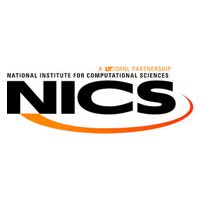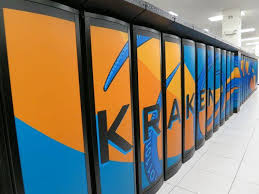 Today the National Institute for Computational Sciences (NICS) announced a $3 million award from the NSF to continue to provide advanced computing resources for researchers in science and engineering across the country through July 2016. This extension brings the total award for the Kraken project to more than $84.5 million since its inception in 2007.
Today the National Institute for Computational Sciences (NICS) announced a $3 million award from the NSF to continue to provide advanced computing resources for researchers in science and engineering across the country through July 2016. This extension brings the total award for the Kraken project to more than $84.5 million since its inception in 2007.
We are very happy to be able to provide our resources and, most important, expertise to the national NSF community,” said Tony Mezzacappa, director of the Joint Institute for Computational Sciences (JICS), of which NICS is a part. “Since the inception of NICS, our staff have served thousands of projects and users across all fields and have accumulated a wealth of experience that continues to prove invaluable to both seasoned and new computational scientists and engineers.”
 Kraken, once the most powerful computer in academia and a workhorse for NSF-funded research, was decommissioned on April 30, 2014. Much of the computing time for this, the third extension of the Kraken project, will be allocated on the Darter supercomputer, a Cray XC30 system. Allocations on Darter and other eXtreme Science and Engineering Discovery Environment (XSEDE) computational resources can be applied for here. The extension also covers the use of the energy-efficient Beacon cluster as a development resource. Information on awards for compute allocations on Beacon is located here.
Kraken, once the most powerful computer in academia and a workhorse for NSF-funded research, was decommissioned on April 30, 2014. Much of the computing time for this, the third extension of the Kraken project, will be allocated on the Darter supercomputer, a Cray XC30 system. Allocations on Darter and other eXtreme Science and Engineering Discovery Environment (XSEDE) computational resources can be applied for here. The extension also covers the use of the energy-efficient Beacon cluster as a development resource. Information on awards for compute allocations on Beacon is located here.
This award is based on the strong demand NSF-funded research has for computational resources and the exemplary service to the national research community that NICS has provided,” said NICS Director Greg Peterson. “We are very pleased to have the opportunity to continue our support of investigations aimed at pushing the frontiers of science and engineering.”
NICS is a leading academic supercomputer center and a major partner in XSEDE, a single virtual system that scientists can use to interactively share computing resources, data, and expertise. People around the world use these resources and services—things like supercomputers, collections of data and new tools—to improve our planet.
NICS is operated by JICS, a partnership between the University of Tennessee and Oak Ridge National Laboratory (ORNL) to advance scientific discovery and leading-edge engineering, and to further the knowledge of computational modeling and simulation. JICS realizes its vision through the use of advanced computers housed at ORNL and by educating a new generation of scientists and engineers to be well-versed in the application of computational modeling and simulation for solving the most challenging scientific and engineering problems.
Source: NICS



